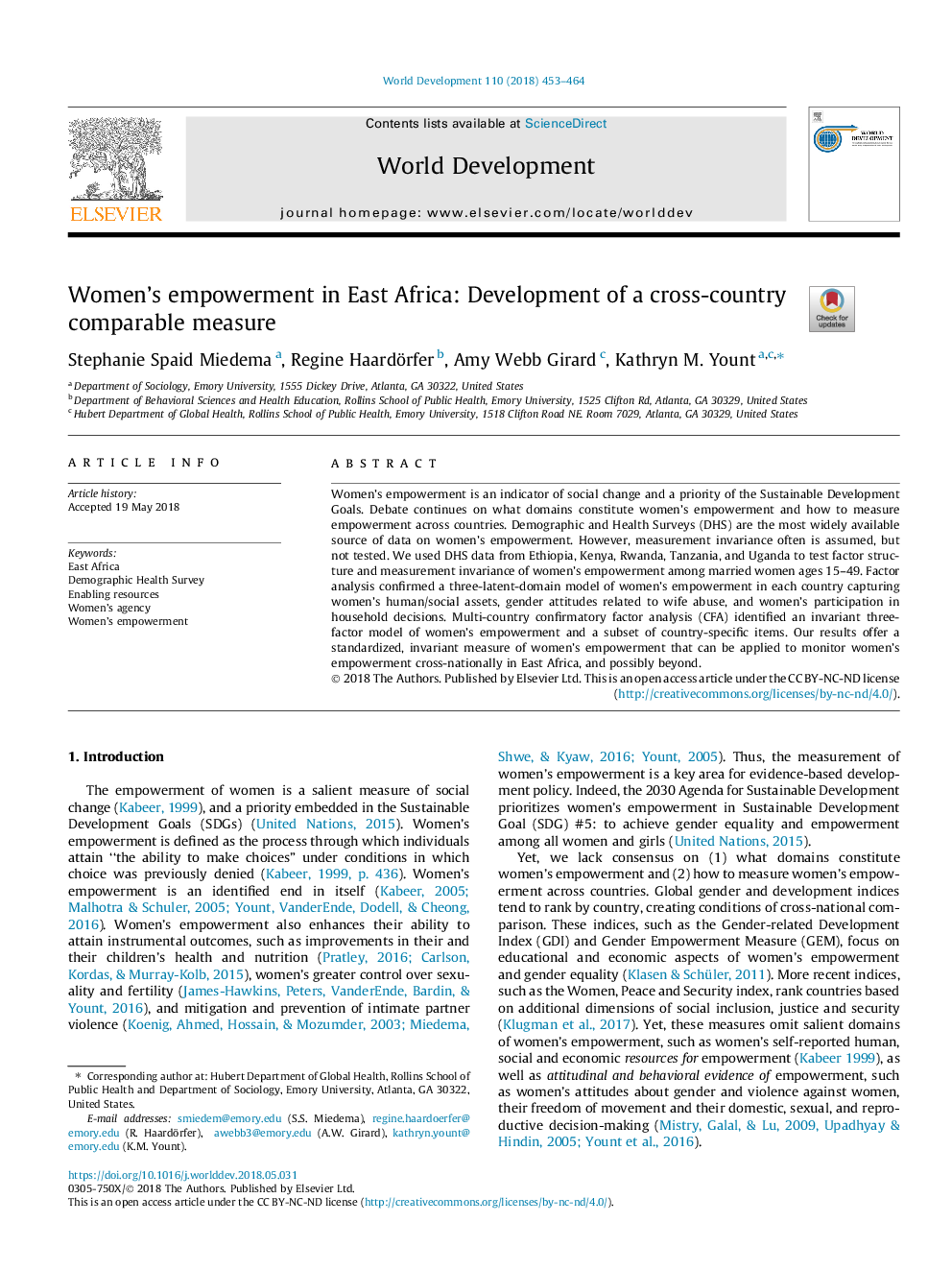| Article ID | Journal | Published Year | Pages | File Type |
|---|---|---|---|---|
| 7391499 | World Development | 2018 | 12 Pages |
Abstract
Women's empowerment is an indicator of social change and a priority of the Sustainable Development Goals. Debate continues on what domains constitute women's empowerment and how to measure empowerment across countries. Demographic and Health Surveys (DHS) are the most widely available source of data on women's empowerment. However, measurement invariance often is assumed, but not tested. We used DHS data from Ethiopia, Kenya, Rwanda, Tanzania, and Uganda to test factor structure and measurement invariance of women's empowerment among married women ages 15-49. Factor analysis confirmed a three-latent-domain model of women's empowerment in each country capturing women's human/social assets, gender attitudes related to wife abuse, and women's participation in household decisions. Multi-country confirmatory factor analysis (CFA) identified an invariant three-factor model of women's empowerment and a subset of country-specific items. Our results offer a standardized, invariant measure of women's empowerment that can be applied to monitor women's empowerment cross-nationally in East Africa, and possibly beyond.
Related Topics
Social Sciences and Humanities
Economics, Econometrics and Finance
Economics and Econometrics
Authors
Stephanie Spaid Miedema, Regine Haardörfer, Amy Webb Girard, Kathryn M. Yount,
